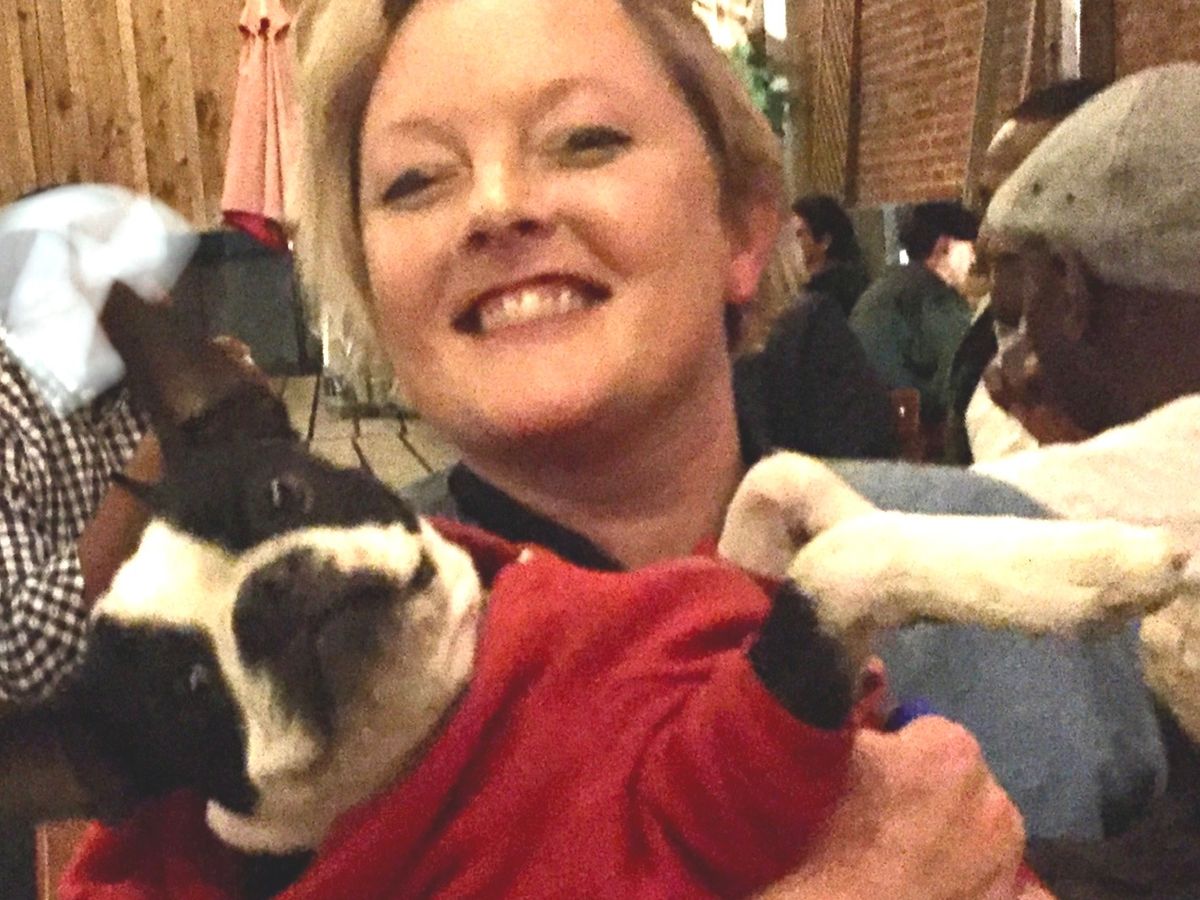
Hello friends and strangers,
My name is Sappho and I'm fundraising for my dear human friend Kadie and my dear dog friend Suki.
Kadie's special dog Suki has developed a painful anterior lens luxation and needs surgery as soon as possible to remove the lens and save her eye.


The estimate received for the surgery comes to more than $5000. We hope that everyone who knows and loves Suki can pitch in any amount they can and share this with their networks to help this little dog who has given us so much joy and love over the years...





Information on lens luxation from VCA Animal Hospitals:
Lens Luxation in Dogs
By Ryan Llera, BSc, DVM; Ernest Ward, DVM
The lens is the transparent structure within the eye that focuses light on the retina, the area where vision occurs. It is a flattened sphere held in place by tiny ligaments around its circumference.
There are two main conditions affecting the lens: cataract formation and lens luxation (see handout "Cataracts in Dogs" for information on cataract formation).
What causes lens luxation?
In some dogs, particularly the terrier breeds, the support ligaments of the lens weaken or break causing the lens to dislocate from its normal position. It can fall backwards into the eye known as a posterior luxation, where it rarely causes discomfort, or it can fall forwards into the eye, called an anterior luxation, where it blocks the drainage of fluid from the eye resulting in glaucoma or increased intra-ocular pressure (IOP). This is extremely painful and can cause permanent blindness. Lens luxation is often secondary to other conditions such as uveitis, glaucoma, cancer of the eye, or in rare cases, trauma or the improper over use of medications, such as atropine.
Hereditary lens luxation. Weakness of the lens ligaments is known to be hereditary in terrier breeds, Chinese Shar Peis, and Border Collies. If you have one of these breeds of dog, it is important to watch for any signs of discomfort or change in appearance of the eye and call your veterinarian immediately if you see any changes.
What is the treatment for an anterior lens luxation?
Surgical removal of an anteriorly displaced lens is the only effective treatment. Until surgery can be done, pain control is important, as well as control of any glaucoma signs. This surgery is usually performed by a board certified veterinary ophthalmologist.
What does surgery for anterior lens luxation involve?
Once the eye has been prepared for surgery, the dislocated lens is removed through a tiny incision in the eye. The incision is closed with absorbable sutures that do not need to be removed. Additional sutures may be placed in the corner of the eye (the canthus) depending on your pet's condition. An alternative surgery is called phacoemulsification in which the lens is essentially liquefied and then aspirated out. This procedure is less traumatic and may carry a better prognosis.
What treatment is recommended for posterior lens luxation?
If the lens luxates posteriorly, or falls into the back of the eye, it causes little or no discomfort. These cases may not require any treatment. The surgery to repair posterior luxation is technically very demanding and the risk of complication greater. Often medications to keep the pupil constricted, are prescribed to keep the lens from falling forward and entering the anterior chamber. Medications used for this can include pilocarpine (brand names Isopto-Carpine®, Pilocar®, Ocu-carpine®, Ocusert Pilo®, Pilopine-HS®, Minims Pilocarpine®), latanoprost (brand name Xalatan®), or travoprost (brand name Travatan Z®).
"If the lens luxates posteriorly, or falls into the back of the eye, it causes little or no discomfort."
If your dog has a posterior luxation you will be asked to monitor it carefully and seek veterinary attention if there are any signs of discomfort or a change of appearance in the eye. This may indicate that the lens has fallen forward resulting in an anterior luxation. If this occurs, surgery will be required.
If you have any other questions, please do not hesitate to contact your veterinarian.
Contributors: Ryan Llera, BSc, DVM; Ernest Ward, DVM
 Organizer and beneficiary
Organizer and beneficiary
Kadie Tolliver
Beneficiary


